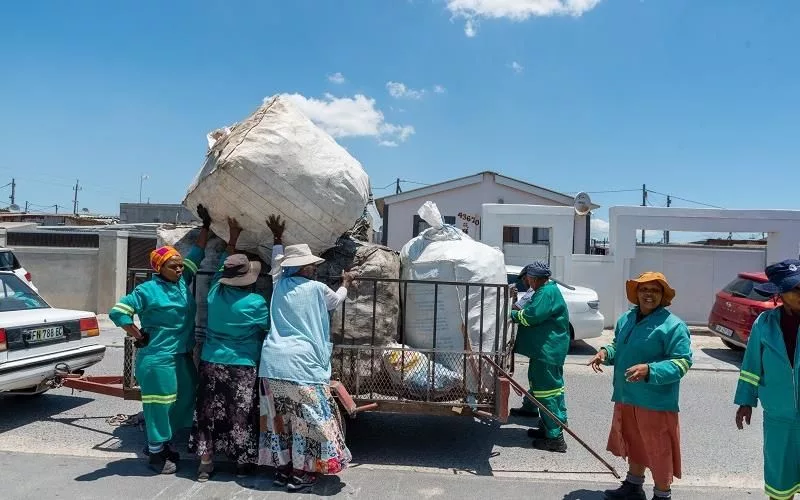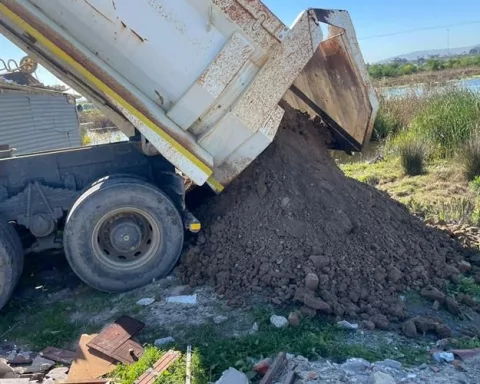Cape Town is urging all waste management enterprises to acquire waste accreditation to align local waste management practices with globally recognized standards. Accredited companies are eligible to bid for municipal tenders, providing a substantial business opportunity. The accreditation process is simple, free, lasts for 24 months, and contributes to constructing a cleaner, more sustainable, and healthier city. The public is urged to patronize accredited companies to contribute to cultivating a culture of environmental responsibility.
The Accreditation Process: Benefits and Importance
City of Cape Town urges all waste management enterprises to acquire waste accreditation. Obtaining the City’s waste accreditation provides a distinction mark for companies, representing compliance with rigid environmental regulations and a commitment to sustainable waste management practices. Accredited companies are also eligible to bid for municipal tenders, providing a substantial business opportunity. The accreditation process is simple, free, and lasts for 24 months, and contributes towards constructing a cleaner, more sustainable, and healthier city.
In a bid to enhance waste management and promote environmental sustainability, the City of Cape Town has taken a step further by urging all waste management enterprises within its territory to acquire waste accreditation. The international standard of best practice in waste management is the benchmark for this initiative. By doing so, the City of Cape Town is making strategic moves to align its local waste management practices with globally recognized standards.
Though traditionally, the City has been responsible for waste collection from residential areas, Cape Town holds a significant private waste management economy. This economy caters to a diverse range of businesses and industries. By compelling these enterprises to undergo an accreditation process, the City is ensuring that these private sectors are in line with the legislation regarding waste management. Therefore, this serves as a crucial step toward constructing a cleaner, more sustainable, and healthier city.
The Accreditation Process: Benefits and Importance
The accreditation process is more than just a regulatory measure. It is also a system of support for the companies seeking accreditation. These companies will benefit from the City of Cape Town’s guidance on implementing best practices, optimizing waste management processes, and staying updated on the industry’s latest developments.
Obtaining the City’s waste accreditation provides a distinction mark for companies. This mark represents a company’s compliance with rigid environmental regulations and its commitment to sustainable waste management practices. It is in line with the City’s objective to cultivate sustainability and environmental responsibility amongst its citizens, businesses, and service providers.
The waste management companies can also reap significant benefits from this accreditation. Not only does it boost their brand’s credibility and reputation, but accredited companies are also eligible to bid for municipal tenders. Therefore, the urge for accreditation is not just a call for environmental responsibility, but it also provides a substantial business opportunity.
Public Participation and the Accreditation Process
Nonetheless, the urge for accreditation does not solely apply to companies. As the Mayoral Committee Member for Urban Waste Management, Alderman Grant Twigg, highlighted, the public equally plays a vital role. He urges everyone utilizing private service providers for waste management to verify their service providers’ accreditation status. Twigg stresses that irresponsible dumping of waste affects families and communities the most. By patronizing accredited companies, everyone can contribute to cultivating a culture of environmental responsibility.
The accreditation process is simple and concise. Interested parties can register online and view the checklist of the necessary information for the application. Upon submission, the company will be informed when their application is under review and the subsequent date for inspection. The entire process spans approximately three to four months to complete, as each step in the accreditation process must be strictly followed. It’s noteworthy that registration is free, and accreditation lasts for 24 months.
A Step Towards a Sustainable City
In the face of a world that is becoming increasingly aware of our environmental impacts, the City of Cape Town’s initiative for waste accreditation is a substantial step towards constructing a more sustainable city. Through regulation, support, and incentives, the City is motivating both businesses and the public to take part in creating a cleaner and healthier environment.
With such initiatives, Cape Town is not merely setting its sights on attaining international best practice in waste management. It is progressively taking active steps to achieve it. This approach reinforces Cape Town’s commitment to environmental sustainability and responsible waste management, setting a precedent for other cities to follow.
1. What is Cape Town’s waste accreditation?
Cape Town’s waste accreditation is a benchmark for companies representing compliance with rigid environmental regulations and a commitment to sustainable waste management practices.
2. What are the benefits of obtaining the accreditation?
Obtaining the accreditation provides a distinction mark for companies, making them eligible to bid for municipal tenders, boosting their brand’s credibility and reputation, and providing a substantial business opportunity.
3. How can companies apply for waste accreditation?
Interested parties can register online and view the checklist of the necessary information for the application. Upon submission, the company will be informed when their application is under review, and the subsequent date for inspection.
4. How long does the accreditation last, and is there a fee?
Accreditation is free and lasts for 24 months.
5. How can the public contribute to cultivating a culture of environmental responsibility?
The public is urged to patronize accredited waste management companies to contribute to cultivating a culture of environmental responsibility.
6. What is the City of Cape Town’s objective in promoting waste accreditation?
The City of Cape Town is making strategic moves to align its local waste management practices with globally recognized standards and ensuring that these private sectors are in line with legislation regarding waste management. It serves as a crucial step toward constructing a cleaner, more sustainable, and healthier city.












